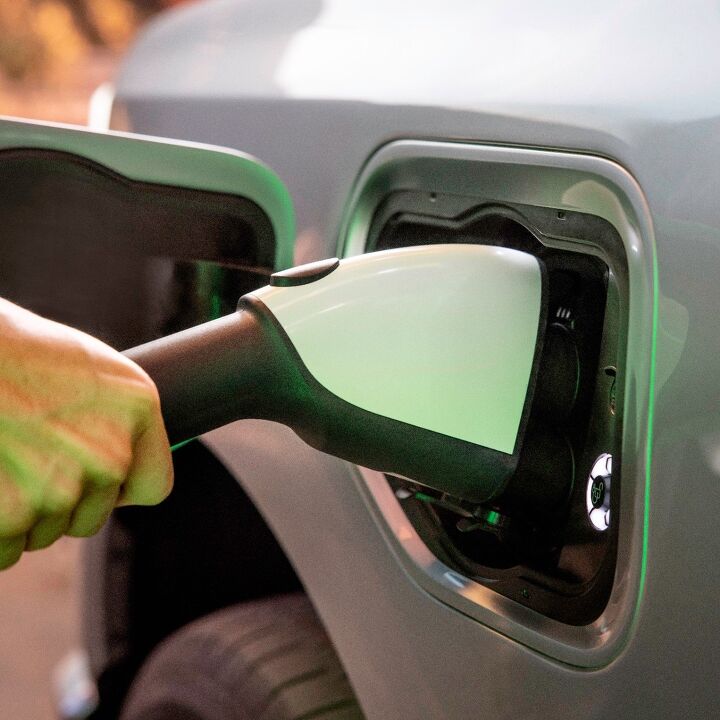
A New York judge has halted Ford and Lincoln from instituting a specific set of requirements before allowing dealerships to sell the brands’ all-electric vehicles. This comes after five stores operating within the state launched a lawsuit against Ford Motor Co. for introducing a new certification process for EVs. The issue was that the automaker was asking too much from dealerships and effectively favoring those with deeper pockets by forcing changes that required significant financial investments.
Ford introduced its tiered dealer program nearly twelve months ago, splitting stores interested in selling electric into “Model e Certified Elite” and “Model e Certified.”
The former required an investment of roughly $900,000 for the installation of two DC fast chargers and some tweaks to ensure customers see them and can tell the location is able to sell EVs. It also requires an additional investment of $300,000 to have a third charger installed by 2026. In exchange, dealers are given access to demo vehicles and a factory guarantee for limited EV allocations.
Meanwhile, Model e Certified stores needed to drop $500,000 on a single charger that’s publicly visible. Those dealerships are likewise given the ability to sell Ford and/or Lincoln EVs. But they are not guaranteed allocations nor any demo models.
While stringent dealer requirements are nothing new from the industry, they also have a tendency to backfire. Demanding dealers to make sizable investments can help improve the customer experience and help move product. But asking for too much can likewise mean offending the people that move said product.
For example, Cadillac’s Project Pinnacle resulted in years of conflict between General Motors and dealer networks — forcing the scheme to undergo repeat changes as stores simply dropped out. GM had simply asked for too much and only saw showrooms playing ball after repeat revisions. These things are commonplace and finding the balance between necessary and overbearing change can be difficult.
Something like the above may actually work out okay for Lincoln. With the brand shrinking, Blue Oval has been hoping to reduce the number of dealerships while instituting a limited number of standalone boutique retail experiences. Lincoln is hoping to focus on creating a desirable, upscale atmosphere and treating customers exceptionally well — separating itself from the core brand both physically and spiritually.
Shifting back to Ford, the company was distressed that dealerships were putting such ludicrously high markups on its EVs as they came to market. By forcing an investment, Blue Oval was presumably trying to weed out which stores were serious about selling EVs and which simply wanted to cash in while they were hard to source. Part of Ford’s new certification process also requires dealerships to agree to fixed pricing.
Overpriced automobiles have become a serious problem in recent years, with dealers frequently adding thousands to in-demand or low-volume models. However, the issue seems to be solving itself as an ailing economy means fewer people can afford new vehicles. Still, Ford wants some guarantee that dealers selling electric cars are seriously committed to offering them long term and in a manner that reflects well on the brand.
Ford has said the program would be entirely voluntary, adding that dealers could opt-in to the EV certification programs later on. This was also the argument it used in court, adding that out of spec dealerships can still sell everything else in Ford’s lineup.
Truth be told, it probably won’t have been an issue in most other states. But New York law stipulates that dealerships demanding a review of any agreement modifications require a mediation process before it can come into effect.
New York's Franchised Motor Vehicle Dealer Act simultaneously forces companies to provide their dealers with at least 90 days of notice before making changes to the agreement. In the case of requests that would physically change the facility, 180 days are required. All five plaintiffs going against Ford have said they were given insufficient notice on the latter item as it pertains to EV fast chargers.
According to Automotive News, Suffolk County Supreme Court Acting Justice James Hudson ruled that Ford had adjusted its dealer relationship to prevent non-participating retailers from selling and servicing EVs that they were allowed to prior to the certification scheme.
"The question before the Court is not whether the Programs are 'reasonable' nor whether participation is 'voluntary,'" Judge Hudson explained. "Instead, the question before the Court is whether the effect of Ford's electric vehicle Programs modifies the franchise business relationship. Each states that a non-participating dealer may neither sell nor service Ford EVs. This is a significant change in the current business model."
The assumption is that dealerships that didn’t want to spend the money have effectively been forced out of selling an entire vehicle segment they previously had access to. We’ll have to wait and see how things progress in New York’s Suffolk County. But Ford’s defense that those shops can simply opt-in later has worked in legal disputes launched in other states.
[Image: Ford Motor Co.]
Become a TTAC insider. Get the latest news, features, TTAC takes, and everything else that gets to the truth about cars first by subscribing to our newsletter.
from TheTruthAboutCars https://www.thetruthaboutcars.com/cars/news-blog/ny-judge-pauses-fords-ev-dealer-requirements-44503126?utm_medium=auto&utm_source=rss&utm_campaign=all_full
No comments:
Post a Comment